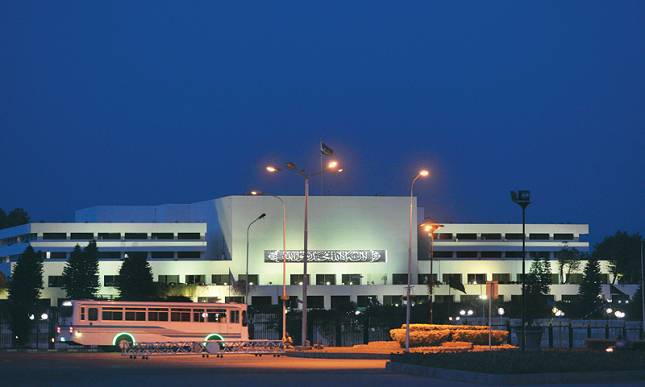
In 2017, while speaking on the floor of National Assembly, then law minister Zahid Hamid had announced that the government would transform the National Accountability Bureau (NAB) into a national accountability commission through an act of Parliament. A committee was formed after NAB came under severe criticism from different quarters, especially by the Supreme Court, over its plea bargain deal and what politicians accused it of selective accountability.
The next 90 days
Later on, Hamid headed a 20-member Parliamentary Committee on National Accountability Laws. However, the 22nd meeting of the committee, which comprised 13 NA members and seven senators, turned out to be its last one as Hamid had to resign both as the law minister and the committee chairman in the face of the Faizabad fiasco. Now, the committee has to be reconstituted as the tenure of many senators is coming to an end.
“With this the hope has died down and it marks the end of the committee, shattering the dream of across the board accountability of all including judges and generals,” said Senator Farhatullah Babar, a former committee member.
Babar had resigned after his proposal for inclusion of provision for accountability of judges and generals was turned down. His proposal was initially agreed upon by all members but later even his own Pakistan Peoples Party (PPP) backed off from its resolve.
With the senators on the committee retiring and the new Senate set to be in place next week, the committee’s composition will be changed and notified again. “Practically, it means the end of the committee and the end of hope of an overarching accountability law on which great hopes were pinned on,” he told The Express Tribune.
The committee’s last few meetings did not go well for the government as the Pakistan Tehreek-e-Insaf (PTI) and the Jamaat-e-Islami (JI) had rejected the formation of a new accountability commission, stating that only amendments to the existing ones would be enough to strengthen the law of 1999.
The PTI had also pointed out lack of time frame for the applicability of the said law, besides questioning the retention of the ‘voluntary return’ clause in the proposed law, including the reduction of punishment of a person from a maximum of 14 to a maximum of seven years in jail if the illegal gains are completely recovered.
The JI contended that the government was unwilling to tighten the noose around the public office holders and had objected to certain provision of the proposed law. The party, instead, recommended plugging loopholes in the existing NAB law.
PPP to have its chairman in Senate, says Bilawal
No comments
All incumbent members of the said committee, including Minister for Law and Justice Bashir Virk, were not available for comments despite repeated attempts. When former law minister Zahid Hamid was contacted, he said the committee was doing its job. However, he refused to share any further thoughts.
The National Accountability Ordinance 1999 was promulgated during the reign of then chief executive Pervez Musharraf. The body has largely been criticised for its actions and policies.
On Feb 28, the Punjab Assembly passed a resolution, presented by law minister Rana Sanaullah, which expressed dismay over the “abuse of discretionary powers of NAB in contradiction to the fundamental human rights and dignity of the civil servants.”
However, commenting on the resolution passed in the Punjab Assembly against the country’s top accountability watchdog, Chief Justice of Pakistan Mian Saqib Nisar on Saturday remarked to Punjab chief secretary Zahid Syed whether their political ‘masters’ will now pass a resolution against the apex court as well.
Published in The Express Tribune, March 5th, 2018.




1730959638-0/trump-(19)1730959638-0-165x106.webp)



1732436825-0/BeFunk_§_]__-(47)1732436825-0.jpg)
1732438009-0/BeFunk_§_]__-(48)1732438009-0.jpg)







COMMENTS (1)
Comments are moderated and generally will be posted if they are on-topic and not abusive.
For more information, please see our Comments FAQ